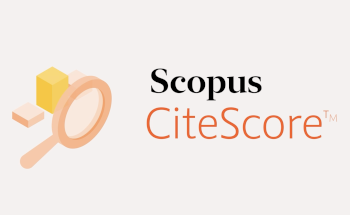Patients Perception of the Quality of Consent for Caesarean Sections in a tertiary health facility in Port Harcourt, Southern Nigeria
DOI:
https://doi.org/10.60787/tnhj.v19i4.454Keywords:
Caesarean Section, Perception, Quality, Informed Consent, Rivers StateAbstract
Background: Informed consent should be viewed as a process and not just a signature on a form as is commonly seen in most cases. It is very important not just to minimise conflict/medico-legal issues but as a tool for better communication between the physician and the patient on diagnosis, treatment risk, etc. In order to improve acceptance/minimise conflicts from Caesarean Deliveries, which are increasingly being performed globally, it is important to determine patients perception of the quality of consents obtained, more so, as previous studies have demonstrated poor quality of consent for various surgical procedures.
Materials and Method: A cross-sectional study was carried out in Braithwaite Memorial Specialist Hospital, between January 2016 to June 2016, using an interviewer based structured questionnaire on women who had caesarean section.
Results: Three hundred and forty eight women who had caesarean section were recruited for the study. They were aged between 20 and 42 years with a mean age of 31.74 ± 4.39 years. Majority (67.5%) of the women had tertiary level of education and 94.8% of the women were married.
Of the 348 women, 220 (63.2%) had emergency caesarean section. 89.9% had knowledge of the diagnosis and the same number, were not aware of possible complications. 55.7% of the consents were obtained by a nurse. Only 52% of the women were satisfied with the consent.
Conclusion: The quality of consent for obstetric surgeries is still poor. Doctors especially consultants need to be more involved in the process to improve its quality.
Downloads
Downloads
Published
Issue
Section
License
Copyright (c) 2020 The Nigerian Health Journal

This work is licensed under a Creative Commons Attribution-NonCommercial-NoDerivatives 4.0 International License.
The Journal is owned, published and copyrighted by the Nigerian Medical Association, River state Branch. The copyright of papers published are vested in the journal and the publisher. In line with our open access policy and the Creative Commons Attribution License policy authors are allowed to share their work with an acknowledgement of the work's authorship and initial publication in this journal.
This is an open access journal which means that all content is freely available without charge to the user or his/her institution. Users are allowed to read, download, copy, distribute, print, search, or link to the full texts of the articles in this journal without asking prior permission from the publisher or the author.
The use of general descriptive names, trade names, trademarks, and so forth in this publication, even if not specifically identified, does not imply that these names are not protected by the relevant laws and regulations. While the advice and information in this journal are believed to be true and accurate on the date of its going to press, neither the authors, the editors, nor the publisher can accept any legal responsibility for any errors or omissions that may be made. The publisher makes no warranty, express or implied, with respect to the material contained herein.
TNHJ also supports open access archiving of articles published in the journal after three months of publication. Authors are permitted and encouraged to post their work online (e.g, in institutional repositories or on their website) within the stated period, as it can lead to productive exchanges, as well as earlier and greater citation of published work (See The Effect of Open Access). All requests for permission for open access archiving outside this period should be sent to the editor via email to editor@tnhjph.com.













